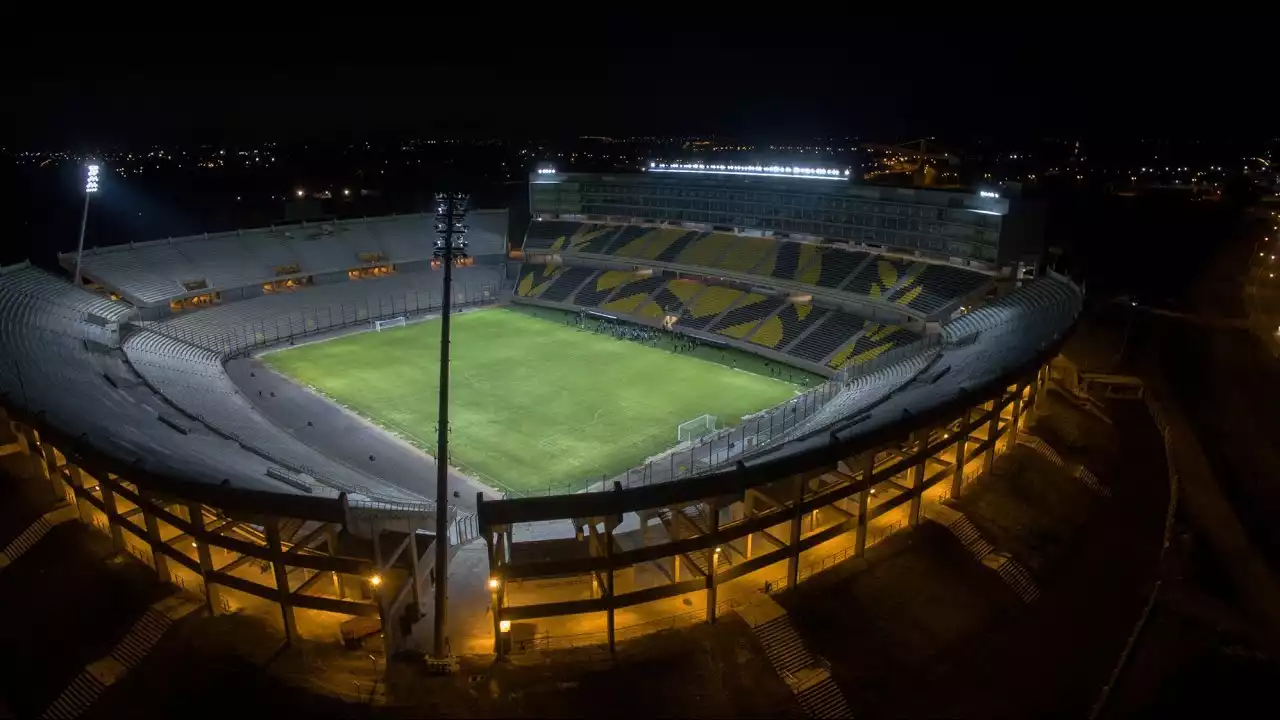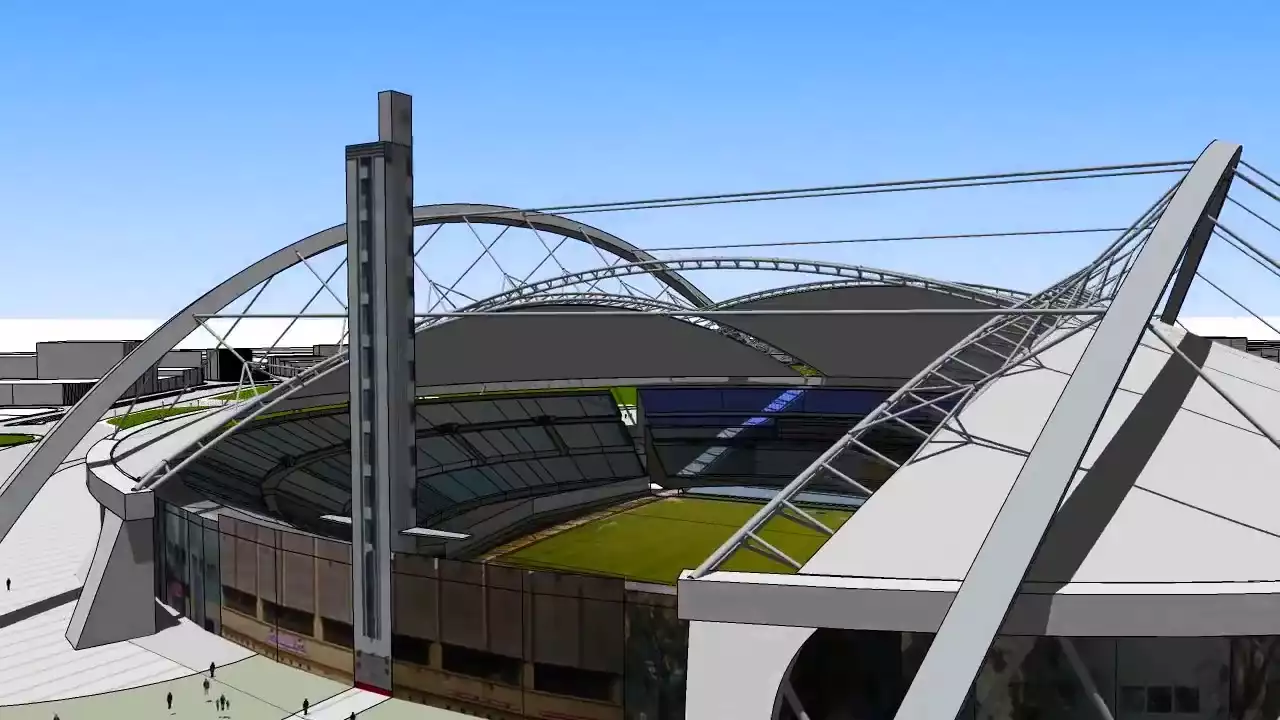The Importance of Eco-Friendly Practices in Sports
In a world facing pressing environmental challenges, the role of sports in promoting sustainability cannot be understated. Sporting events attract millions of spectators and viewers globally, making them a powerful platform to raise awareness and drive change. By adopting eco-friendly practices, sports organizations can significantly reduce their carbon footprint and inspire fans to become more environmentally conscious. Stadiums, in particular, have a significant impact on the environment due to their energy consumption, waste generation, and water usage. Therefore, implementing sustainable initiatives in stadiums not only benefits the planet but also sets an example for other industries to follow.
Eco-friendly practices in sports go beyond simply reducing environmental impact. They also have the potential to create economic opportunities, improve public health, and strengthen community ties. By investing in renewable energy sources and waste management systems, sports organizations can save on utility costs and contribute to local job creation. Additionally, promoting sustainable transportation options to and from stadiums can help reduce traffic congestion and air pollution. The combined efforts of sports clubs, fans, and local communities can lead to a more sustainable and inclusive future for all.
The Uruguayan Primera Division and Its Commitment to Sustainability
The Uruguayan Primera Division, the top football league in Uruguay, has emerged as a pioneer in sustainable stadium initiatives. Recognizing the importance of reducing their environmental impact, several clubs in the league have taken significant steps towards implementing eco-friendly practices. These clubs understand that their stadiums can serve as powerful symbols of sustainability and inspire positive change among fans.
One such club leading the way is Club Nacional de Football, based in Montevideo. The club's stadium, Estadio Gran Parque Central, has undergone extensive renovations to incorporate sustainable features. The stadium now boasts solar panels that power floodlights, reducing the reliance on traditional energy sources. Additionally, rainwater harvesting systems have been installed, allowing the club to irrigate the pitch and meet other water needs sustainably. Club Nacional's commitment to sustainability extends beyond the stadium itself, with the club actively promoting eco-friendly practices among its fan base through educational campaigns and community outreach initiatives.
Eco-Friendly Stadium Designs and Renovations in the Uruguayan Primera Division
In the quest for sustainability, Uruguayan Primera Division clubs have embraced innovative stadium designs and renovations that prioritize eco-friendly practices. Gone are the days when stadiums were solely focused on providing a venue for sporting events. Today, sustainability is at the forefront of stadium construction and refurbishment plans.
One notable example is the Estadio Campeon del Siglo, home to Club Atletico Penarol. This state-of-the-art stadium, inaugurated in 2016, was designed with sustainability in mind. The stadium's roof is equipped with solar panels, which generate clean energy to power various stadium operations. The use of natural ventilation and energy-efficient lighting systems further reduces the stadium's energy consumption. Additionally, the stadium incorporates green spaces and permeable surfaces, allowing for natural rainwater infiltration and reducing the strain on drainage systems.
These sustainable stadium designs and renovations not only minimize environmental impact but also enhance the overall fan experience. By creating a more environmentally friendly and aesthetically pleasing atmosphere, clubs are able to attract more supporters and strengthen their connection with the community.
Renewable Energy Sources and Waste Management in Uruguayan Stadiums
Renewable energy sources play a vital role in reducing carbon emissions and promoting sustainability in Uruguayan Primera Division stadiums. By harnessing the power of the sun, wind, and other renewable resources, clubs are able to generate clean energy and reduce their reliance on fossil fuels.
Solar energy, in particular, has gained significant traction in Uruguayan stadiums. Solar panels installed on stadium roofs and surrounding areas can generate electricity to power various stadium operations, including lighting, heating, and cooling systems. This not only reduces carbon emissions but also lowers utility costs for clubs in the long run. The Estadio Centenario, Uruguay's national football stadium and a historic venue in the Uruguayan Primera Division, has embraced solar energy by installing a substantial array of solar panels. This initiative has not only made the stadium more sustainable but has also created a visually striking feature that symbolizes the country's commitment to renewable energy.
Alongside renewable energy initiatives, waste management systems have also become a key focus in Uruguayan stadiums. Clubs have implemented recycling programs, ensuring that waste generated during matches and events is properly sorted and disposed of. By encouraging fans to recycle and providing easily accessible recycling bins throughout the stadium, clubs are able to significantly reduce the amount of waste sent to landfills. Some clubs have even gone a step further by implementing composting systems, allowing organic waste to be turned into nutrient-rich soil. These waste management practices not only reduce environmental impact but also foster a culture of sustainability among fans.
Water Conservation Efforts in Uruguayan Primera Division Stadiums
Water conservation is a critical aspect of sustainable stadium initiatives in the Uruguayan Primera Division. Given the significant water requirements of maintaining football pitches and meeting the needs of spectators, clubs have implemented various measures to minimize water usage and promote responsible water stewardship.
Rainwater harvesting systems have become increasingly common in Uruguayan stadiums. These systems collect rainwater from the stadium's roof and other surfaces, storing it for later use in irrigation and other non-potable water needs. This reduces the reliance on freshwater sources and helps conserve water, particularly during dry periods. Estadio Luis Franzini, the home stadium of Defensor Sporting Club, is a prime example of a stadium that has embraced rainwater harvesting. The club's commitment to water conservation extends beyond the stadium, with educational programs aimed at raising awareness about responsible water usage among fans.
Furthermore, clubs have invested in water-efficient technologies, such as low-flow faucets and toilets, to minimize water waste in stadium facilities. By implementing these measures, clubs are not only reducing their environmental impact but also setting an example for fans to follow in their own homes and communities.
Promoting Sustainable Transportation to and from Stadiums
Transportation is a significant contributor to greenhouse gas emissions, making it an important focus for sustainable stadium initiatives. Uruguayan Primera Division clubs recognize the role they can play in promoting sustainable transportation options to and from stadiums, thereby reducing the environmental impact of matchday travel.
One approach adopted by clubs is the promotion of public transportation. By partnering with local transport authorities, clubs can incentivize fans to use buses, trams, and trains to reach the stadium. This reduces the number of private vehicles on the road, alleviating traffic congestion and reducing air pollution. Some clubs even offer discounted or free public transportation tickets for matchday ticket holders, further encouraging the use of sustainable transportation options.
Additionally, clubs have taken steps to improve bicycle infrastructure around stadiums, with the installation of bike racks and dedicated cycling lanes. This encourages fans to choose cycling as a sustainable mode of transportation, providing health benefits while reducing carbon emissions. By creating a bicycle-friendly environment, clubs are not only promoting sustainable transportation but also fostering a sense of community among fans.
Community Involvement and Education on Sustainable Practices
Sustainable stadium initiatives in the Uruguayan Primera Division extend beyond the physical infrastructure of stadiums. Clubs actively involve the local community and use their platforms to educate fans on sustainable practices.
Educational campaigns and workshops are organized to raise awareness about environmental issues and promote sustainable habits. These initiatives aim to empower fans with knowledge and practical tips they can implement in their daily lives. By engaging fans in conversations about sustainability, clubs create a sense of ownership and responsibility among their supporters.
Furthermore, some clubs have partnered with local schools and organizations to develop educational programs focused on sustainability. These programs not only teach children about the importance of environmental stewardship but also inspire them to become future advocates for sustainable practices.
The Impact of Sustainable Stadium Initiatives on the Environment and Local Communities
The sustainable stadium initiatives implemented in the Uruguayan Primera Division have had a significant impact on both the environment and local communities. By reducing carbon emissions, conserving water, and promoting responsible waste management, clubs are actively contributing to a greener future.
From an environmental perspective, the adoption of renewable energy sources has led to a substantial reduction in carbon emissions associated with stadium operations. Solar panels and other forms of clean energy generation have allowed clubs to reduce their reliance on fossil fuels and lower their overall environmental footprint. Water conservation efforts, including rainwater harvesting and water-efficient technologies, have helped minimize water usage and protect local water sources. Additionally, responsible waste management practices have diverted significant amounts of waste from landfills, reducing pollution and promoting circular economy principles.
Beyond the environmental benefits, sustainable stadium initiatives have also had a positive impact on local communities. By creating job opportunities in renewable energy and waste management sectors, clubs contribute to local economic development. The promotion of sustainable transportation options and community involvement initiatives strengthen the bond between clubs and their supporters, fostering a sense of pride and belonging. Furthermore, by educating fans and empowering them to adopt sustainable practices, clubs inspire behavior change that extends beyond the stadium walls.
The Future of Eco-Friendly Practices in Uruguayan Primera Division Stadiums
As the Uruguayan Primera Division continues to embrace sustainability, the future looks promising for eco-friendly practices in its stadiums. Clubs are likely to further invest in renewable energy sources, such as wind and geothermal, to diversify their clean energy portfolios. Advancements in technology may also lead to more efficient energy storage solutions, ensuring a reliable supply of clean energy during matches and events.
Water conservation efforts are expected to evolve, with clubs exploring innovative methods of rainwater harvesting and water reuse. The implementation of smart irrigation systems, for example, could optimize water usage based on weather conditions and pitch requirements. Furthermore, clubs may explore partnerships with local water authorities and conservation organizations to promote responsible water stewardship beyond the stadium walls.
Community involvement and education will remain at the forefront of sustainable stadium initiatives. Clubs will continue to engage fans through educational campaigns, workshops, and partnerships with schools and organizations. By empowering the next generation of fans with knowledge and a sense of responsibility, clubs can create a lasting impact on sustainability.
The Uruguayan Primera Division has become a beacon of sustainable stadium initiatives, showcasing how football can act as a catalyst for change towards a more sustainable future. From embracing renewable energy sources and waste management systems to promoting responsible water usage and sustainable transportation options, clubs in the league are setting an example for sports organizations worldwide. By prioritizing sustainability, they not only reduce their environmental impact but also inspire fans to adopt more eco-friendly practices in their own lives. As the league continues to evolve, the future holds even greater potential for eco-friendly practices in Uruguayan Primera Division stadiums, contributing to a greener and more sustainable world for all.










